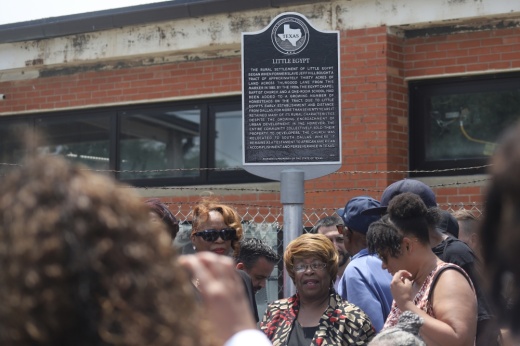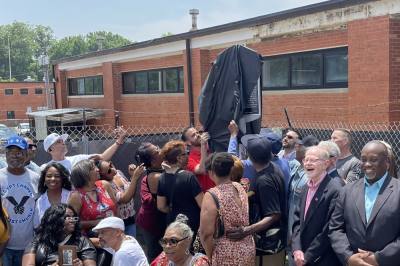What happened: The Texas Historical Commission recently designated Little Egypt as “vital and an educational part of local history,” according to a news release. City officials unveiled a historical marker for the town next to the Dallas Park and Recreation Department’s Paul Dyer Administrative Building at 8630 Thurgood Lane on May 20.
The history: In 1883, Black people who were formerly enslaved built Little Egypt on a 30-acre tract of land. The settlement thrived for about 80 years before getting demolished and cleared for development of the neighborhood now known as Lake Highlands.
The settlement remained largely forgotten until 2015, when Clive Siegle and Tim Sullivan, former professors at Dallas College's Richland Campus, discovered its remnants with the help of their students. Since then, Siegle, Sullivan and their students have worked to document the community’s history by recording oral histories of the settlement and recovering artifacts from the area.

Why it matters: During the unveiling ceremony, Dallas City Council Member Adam McGough, who represents Lake Highlands, said “history is something we have to know.” By commemorating Little Egypt, community members can get to know their ancestors and honor the legacy of the freedmen’s town, he said.
“This is a significant part of our history, a significant part of District 10 and Lake Highlands, and I hope everybody knows about Little Egypt,” McGough said at the ceremony. “I hope it’s part of something that just sparks everybody coming together and ... doing something really special in this city.”
A closer look: The historical marker reads: “The rural settlement of Little Egypt began when former slave Jeff Hill bought a tract of approximately 30 acres of land across Thurgood Lane from this marker in 1883. By the 1920s, the Egypt Chapel Baptist Church and a one-room school had been added to a growing number of homesteads on the tract. Due to Little Egypt’s early establishment and distance from Dallas, for more than seventy years it retained many of its rural characteristics despite the growing encroachment of urban development. In 1962, however, the entire community collectively sold their property to developers. The church was relocated to south Dallas, where it remains as a testament to African American accomplishment and perseverance in Texas.”

Going forward: Siegle and Sullivan said during the ceremony that they hope to eventually display Little Egypt artifacts at the African American Museum at Fair Park. They are still researching the town and urged anyone with historical information to email [email protected].
Those interested in preserving the history of Little Egypt can volunteer at the Little Egypt Cemetery Stroll and Clean Up hosted by the Plano Conservancy for Historic Preservation, the McCree Cemetery Association and Versar Inc. Descendants of Little Egypt were buried at the McCree Cemetery at 9934 Audelia Road, Dallas. The cleanup event will take place 9 a.m.-3 p.m. June 3. For more information, email [email protected].






